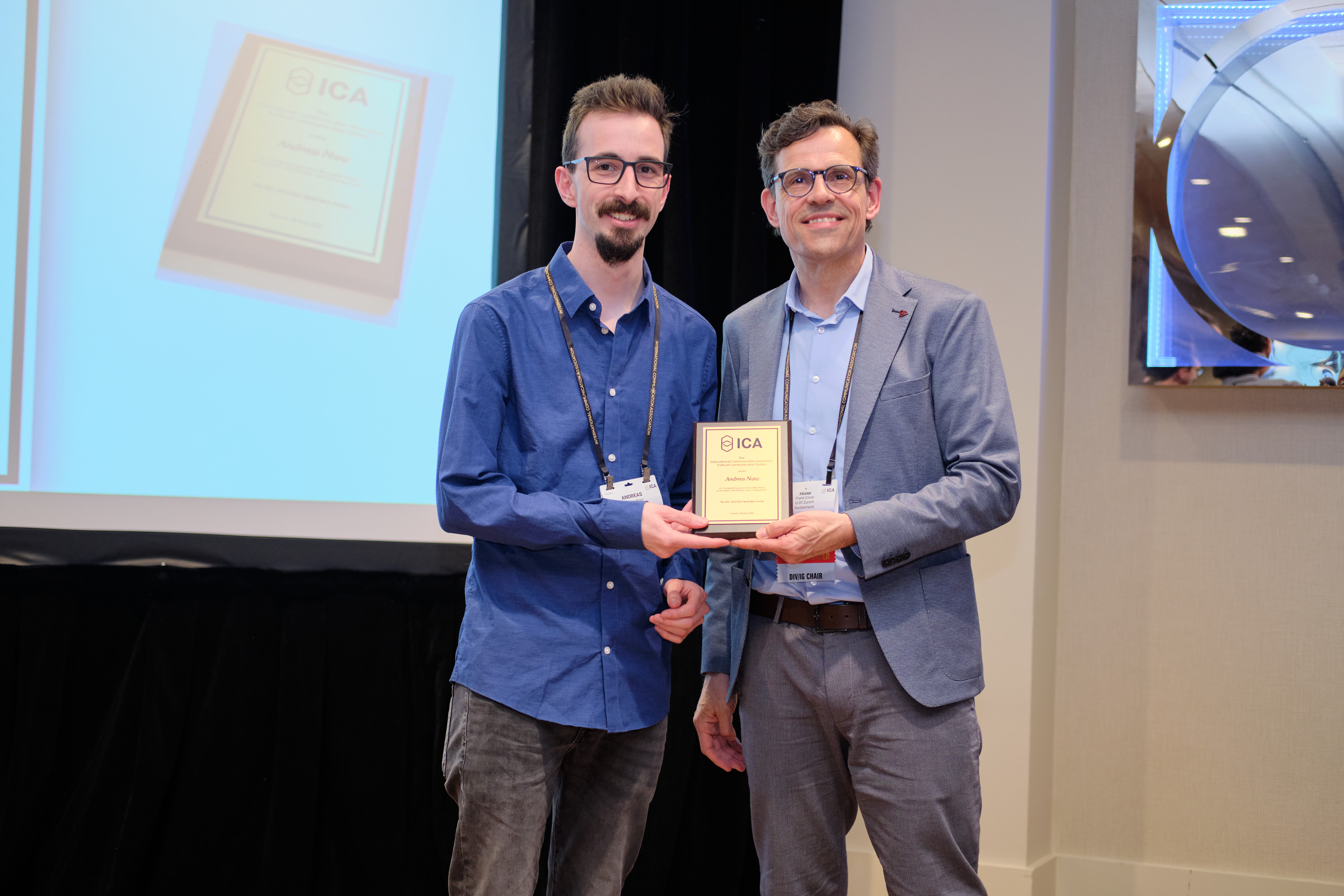
Award won:
- Political Communication Division Best Dissertation Award
Name(s) & affiliation:
- Andreas Nanz (University of Vienna, Austria)
Project title:
- Incidental exposure in the online world: Antecedents, mechanisms, and consequences
Publication reference, link (APA 7th):
- Nanz, A. (2022). Incidental exposure in the online world: Antecedents, mechanisms, and consequences. [Doctoral dissertation, University of Vienna]. https://utheses.univie.ac.at/detail/64057/
Tell us something about you/your team and how and why you decided to focus on this research
- A few months after starting my PhD position in a funded research project, we stumbled upon a call for papers for Journalism about incidental news exposure. Since I had read a couple of incidental exposure papers a bit prior for another paper, we knew the limitations of the current research in this area and had a couple of ideas for future research. Thus, for the CfP, we decided to write a theoretical paper as a first stepping stone. In the end, it was the political incidental news exposure model (PINE). The dissertation was the empirical test of this model.
In 280 characters or less, summarize the main takeaway of your project.
- The phenomenon of incidental exposure (IE) is much more nuanced than previously expected. We should distinguish different levels of IE (brief scanning vs. thorough scanning) and not forget that there is a lot of non-political information which might also distract from politics.
What made this project a “polcomm project”?
- The literature about incidental exposure very much sits at the intersection between communication and political science. Often studies ask the question how media exposes individuals to political content they did not intend to see and what kind of consequences this incidental exposure has for politically relevant variables such as political knowledge or participation. In the final study of the dissertation, we tried to shift this frame a bit by focusing on the impact of non-political incidental exposure on political information processing.
What, if anything, would you do differently, if you were to start this project again? (What was the most challenging part of this project? …& how did you overcome those challenges?)
- Since I consider writing a dissertation also as somewhat of a “learning journey”, I would do many things differently. For example, I would not try to field a study in schools in the first weeks after the school year starts. Of course, I would also get rid of the typo I recently found in one of my published studies. Regarding challenges, the global pandemic was certainly a bump in the road.
What other research do you currently see being done in this field and what would you like to see more of in the future?
- I think that this sub-field of political communication research has done a big step with and also since the special issue in Journalism in 2020. I’m also thrilled to see that some ideas and approaches from this dissertation found their way into studies by other scholars in the field. In the larger field of political communication, I very much enjoy reading the small but growing bulk of experimental studies that try to recreate or simulate the complexity and fuzziness of contemporary real-life information environments.
What’s next? (Follow-up projects? Completely new direction?)
- The question “what’s next” I have not fully answered yet. But I’m currently involved in multiple projects with colleagues from my team, some also related to political communication. And, there are still two follow-up studies related to the dissertation’s topic in the making. So, stay tuned!
Awardee Interview: Best Dissertation Award (2023)
